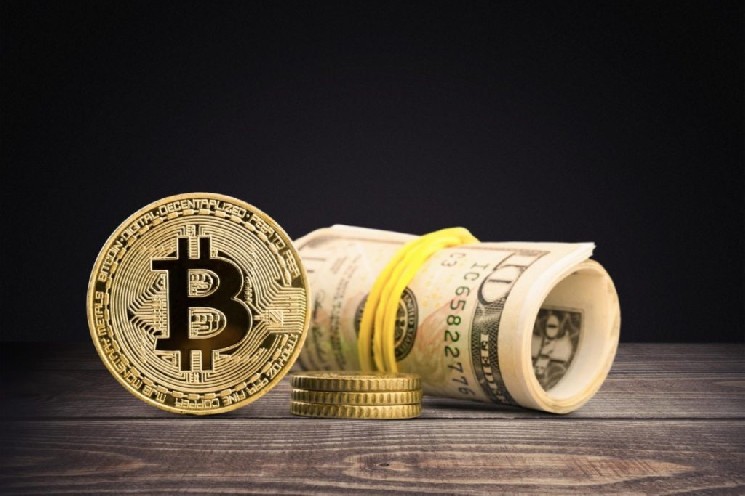Bitmex vs Bitpanda vs Kucoin: who wins?

Bitmex, Bitpanda, and Kucoin are three popular cryptocurrency exchanges.
Bitmex was founded in 2014 in the US, but is now based in the Seychelles. It is most famous for trading crypto derivative products such as futures.
Bitpanda was also founded in 2014, but in Europe, in Vienna. It is by far one of the largest European crypto exchanges.
Kucoin, on the other hand, was founded in 2013 in China, but later moved to Singapore and Hong Kong because of the Chinese ban on cryptocurrency trading. However, it is also based at Seychelles.
Summary
- Bitmex, Bitpanda and Kucoin: volumes compared
- The cryptocurrencies supported by Bitmex, Bitpanda, and Kucoin
- Bitmex, Bitpanda and Kucoin: the number of users
- The different rates charged by Bitmex, Bitpanda, and Kucoin
- Reserves: the now famous Proof-of-Reserves
- The tokens of the three exchanges
- Who wins?
Bitmex, Bitpanda and Kucoin: volumes compared
By daily trading volumes on spot markets, none of the three exchanges are in the very top positions globally.
After all, Bitmex for example, is mainly used to exchange derivatives, so spot token exchanges are almost negligible.
Bitpanda is one of the largest European exchanges, but Europe is certainly not the largest crypto market in the world. So its daily spot trading volume is not very high, around $10 million.
Kucoin, on the other hand, operates strongly in the Asian crypto market, which is the second largest in the world after the United States. In fact, it exceeds $700 million in daily spot trades.
However, there are at least a dozen crypto exchanges in the world with daily spot volumes greater than $1 billion.
So on Bitmex there is almost no liquidity for spot exchange of tokens, instead it is one of the most liquid crypto markets for derivative products.
Bitpanda has an average level of liquidity but specializes in providing crypto services to Europeans, while Kucoin has a fair amount of liquidity although it mainly operates for Asian markets.
The cryptocurrencies supported by Bitmex, Bitpanda, and Kucoin
Precisely because it specializes mainly in crypto derivatives, not many cryptocurrencies are listed on Bitmex, although there are those in particular for which it makes sense to create derivatives.
Bitpanda, on the other hand, does not allow the exchange of derivatives, only spot trades of about fifty cryptocurrencies.
Kucoin, for its part, not only allows both spot exchanges and derivative exchanges, but lists hundreds of tokens and cryptocurrencies. In this respect it is by far more comprehensive than Bitmex and Bitpanda, as its higher volumes on spot markets also show. One must always remember though, that it is a Singapore-based exchange designed specifically for the Asian market.
Bitmex, Bitpanda and Kucoin: the number of users
As for Bitmex and Bitpanda, the data regarding the number of active users is not known precisely, while for Kucoin it is estimated to be more than 20 million. Then again, the Asian market by far has the most people in the world, while the US market is dominated by very powerful competitors.
In contrast in terms of social numbers, on Twitter Bitmex has less than 160,000 followers, and Bitpanda less than 80,000. Kucoin, on the other hand, despite its main area of focus being Asia, has more than 2.3 million.
These figures clearly show how Kucoin’s user community is by far the largest of the three, but in this the exchange is greatly helped by the fact that its area of choice is populated by almost half of the entire world’s population, which is at least five times more than those of Bitpanda and Bitmex.
The different rates charged by Bitmex, Bitpanda, and Kucoin
Comparing fees on exchanges is difficult, both because they differ between spot and derivative exchanges and because there are no fixed figures as they depend on volumes.
For example, the fees for derivatives exchanges are very low on both Bitmex and Kucoin, although on Bitmex they are even lower. It is no coincidence that this is one of the most widely used exchanges in the world for crypto derivatives.
Instead, for spot exchanges, the fees are very low on Bitpanda but only if high trading volumes are reached, particularly above 25,000,000. Instead, for low trading volumes KuCoin is more convenient.
Moreover, the high number of users of Kucoin seems to show that it is an exchange used mainly by many retail investors, while the certainly much lower number of users of Bitmex and Bitpanda suggests that it is used mainly by professionals or at least by investors who generate significant trading volumes.
Reserves: the now famous Proof-of-Reserves
Regarding reserves, it is worth mentioning that for example for Bitmex, where token deposits for spot markets are certainly very low, token reserves are not that important.
Instead, fiat currency reserves would be important, but these cannot be verified on-chain.
For Kucoin, on the other hand, on-chain reserves data are available, which at this time correspond, according to CoinMarketCap, to about $2.7 billion. Of these, 33% are in USDT, 11% in Bitcoin (BTC) and 19% in their KCS token.
By contrast, data from Bitpanda are not publicly available.
The tokens of the three exchanges
BitMEX has its own token called BMEX.
It debuted in the crypto markets last year with a price of about $0.6, while it has now risen to $0.66. To be fair, a few days after launch it had gone as high as $1.2, only to plummet below $0.4. But overall it seems to be a token with a relatively stable, if volatile, value.
Its market capitalization is about $300 million.
Bitpanda also has its own token called BEST (Bitpanda Ecosystem Token).
It debuted in the crypto markets in 2019 at a price of $0.06. So the current price of $0.32 is enormously higher, although compared to $3.11 in April 2021 it is 89% lower.
It is therefore a token whose value is not very stable, but over the long term it is growing significantly, following the general trend of crypto markets.
Its capitalization is over $100 million.
KuCoin has the KCS token which with 720 million capitalization is the most valuable of the three.
It debuted on the crypto markets as early as 2017, at a price of $0.7. The current one of $7 is ten times higher, although 74% lower than the $28 touched in December 2021.
It is worth noting that KCS already in early 2018 had tried to approach a price of $20, though without succeeding, albeit by a small margin. So the current price is at least two and a half times lower than the high of the previous cycle.
Moreover, until January 2021 it had remained fairly stable, albeit around $1, so it is a relatively stable token that however becomes volatile during large bull runs.
Who wins?
From these numbers it seems that the winner that emerges is Kucoin. However, it must be said that it wins mostly in the Asian markets, while in truth the user valuations internationally are not very high.
In contrast, Bitmex and Bitpanda are not comparable, because the former hardly has spot markets, and the latter does not have the derivatives market.
However, it is possible to say that among these three exchanges, with regard to spot markets in Europe, Bitpanda is the winner, partly because of more positive average user reviews.
Bitmex also wins, but only in the US and only on the derivatives market.
Finally, it is worth adding that none of the three is the undisputed leader in its market globally.






 Bitcoin
Bitcoin  Ethereum
Ethereum  Tether
Tether  USDC
USDC  TRON
TRON  Dogecoin
Dogecoin  Cardano
Cardano  Bitcoin Cash
Bitcoin Cash  Chainlink
Chainlink  LEO Token
LEO Token  Monero
Monero  Zcash
Zcash  Stellar
Stellar  Litecoin
Litecoin  Hedera
Hedera  Dai
Dai  Cronos
Cronos  OKB
OKB  Tether Gold
Tether Gold  Ethereum Classic
Ethereum Classic  KuCoin
KuCoin  Gate
Gate  Algorand
Algorand  Cosmos Hub
Cosmos Hub  VeChain
VeChain  Stacks
Stacks  Tezos
Tezos  Dash
Dash  TrueUSD
TrueUSD  IOTA
IOTA  Basic Attention
Basic Attention  Theta Network
Theta Network  Decred
Decred  NEO
NEO  Synthetix
Synthetix  Qtum
Qtum  Ravencoin
Ravencoin  0x Protocol
0x Protocol  DigiByte
DigiByte  Zilliqa
Zilliqa  Nano
Nano  Siacoin
Siacoin  Numeraire
Numeraire  Waves
Waves  Status
Status  Ontology
Ontology  Enjin Coin
Enjin Coin  Hive
Hive  BUSD
BUSD  Pax Dollar
Pax Dollar  Lisk
Lisk  Steem
Steem  Huobi
Huobi  NEM
NEM  OMG Network
OMG Network  Bitcoin Gold
Bitcoin Gold  Bitcoin Diamond
Bitcoin Diamond  Augur
Augur